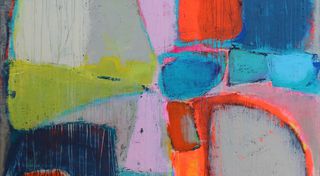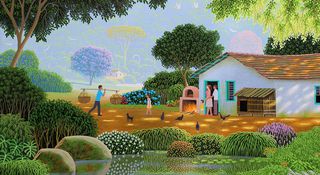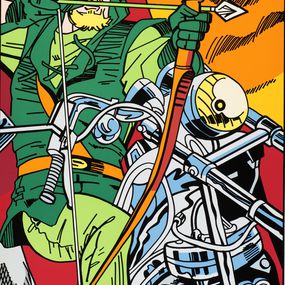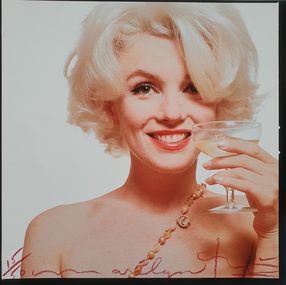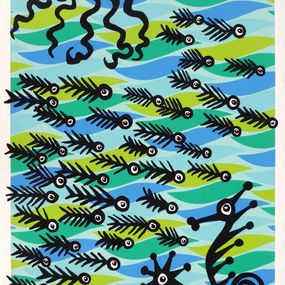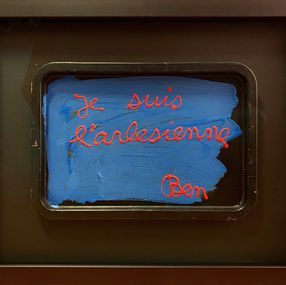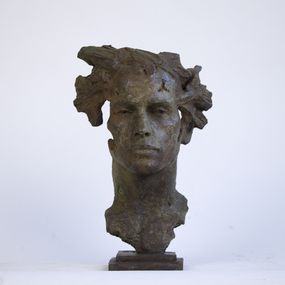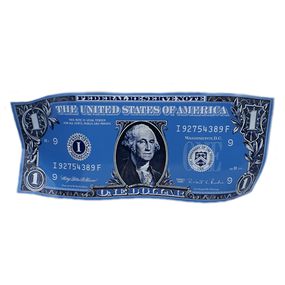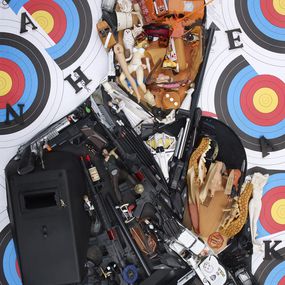
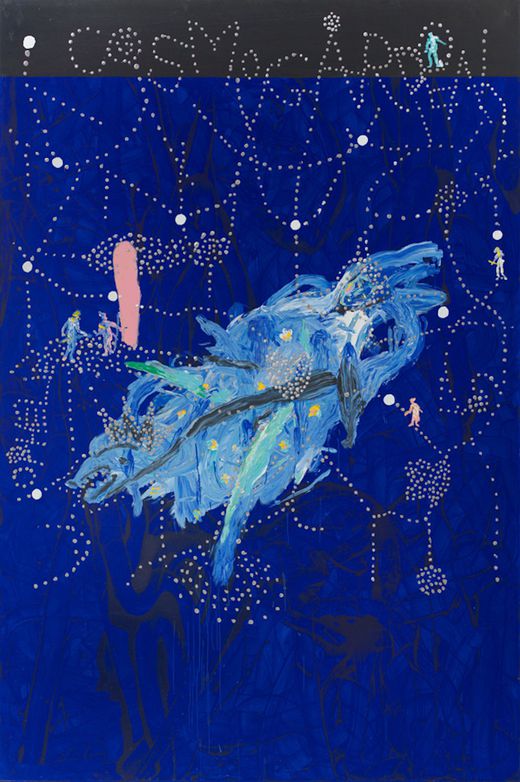
Biography
Aki Kuroda, born in 1944 in Kyoto, is a renowned multidisciplinary Japanese artist currently living and working in Paris. Raised in a family deeply influenced by European culture, Kuroda often says that he began painting the moment he could hold a brush. His passion for art has taken him on a remarkable journey, which has seen him become one of the most prominent figures in the international art scene.
Kuroda's influence in both the art and literary worlds continues to grow, with his latest works attracting global attention. His interdisciplinary approach and collaboration with key figures in the arts solidify his legacy as a pivotal figure in contemporary art. Whether through his iconic paintings, performances, or public commissions, Aki Kuroda remains at the forefront of cultural innovation, blending Eastern and Western influences in groundbreaking ways.
Kuroda first moved to Paris in 1970 after several trips to France, where he quickly established himself as an artist. His first solo exhibition took place in Germany in 1978, and he went on to participate in major events like the 11th Biennale de Paris in 1980 and the Sao Paulo Biennial in 1994. His career has spanned numerous solo exhibitions across Europe, Japan, Brazil, the USA, and China, including notable exhibitions at the National Museum of Bratislava in 1992 and the National Museums of Modern Art in Tokyo and Osaka in 1993-94.
In addition to his visual art, Kuroda is known for his innovative performances, which began in 1992. These performances mix various art forms and have led him to collaborate with famous figures in the arts, such as choreographer Angelin Preljocaj for the Parade performance at the Opéra de Paris and the Avignon Festival in 1993, as well as with renowned architects Tadao Ando and Richard Rogers in Japan.
Kuroda's artistic reach extends beyond gallery walls, having completed several significant public and private commissions. His notable murals can be found at prestigious locations such as the Pôle Universitaire Léonard de Vinci, the Cultural House of Japan in Paris, the coffee shop in the Musée d'Art Moderne et Contemporain de Strasbourg, and the City of Paris, among many others.
Aki Kuroda is also deeply connected to the literary world. In 1985, he edited Noise, a newspaper that featured contributions from intellectuals like Jacques Derrida and Michel Serres. His works have inspired literary giants such as Marguerite Duras, Michel Foucault, and Pascal Quignard, highlighting the intersection of his visual art with the world of philosophy and literature.
Nationality
Themes
